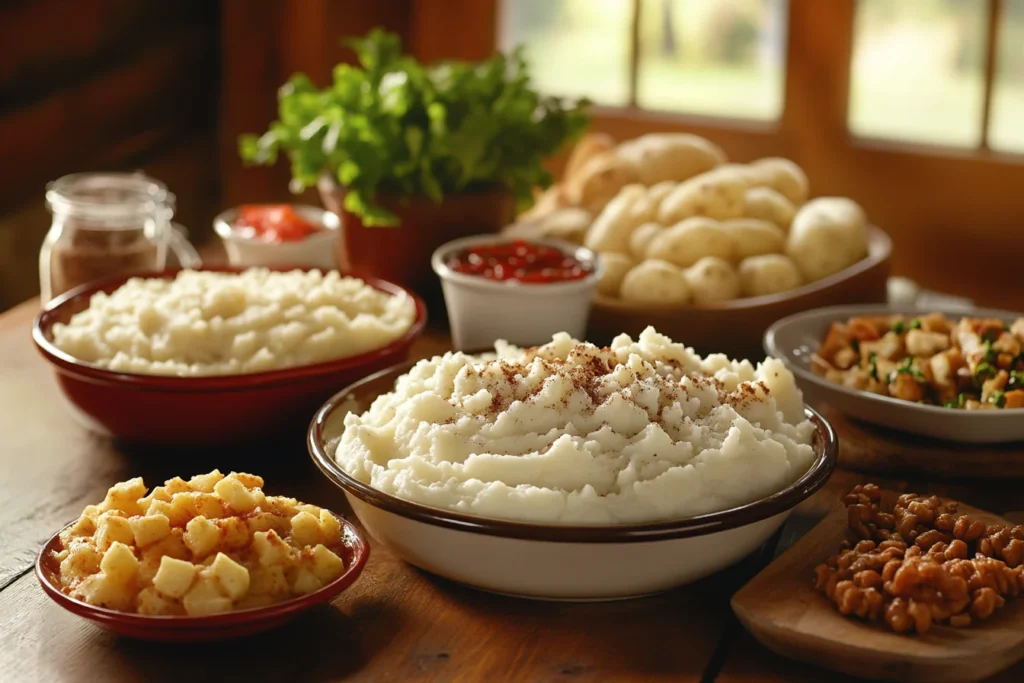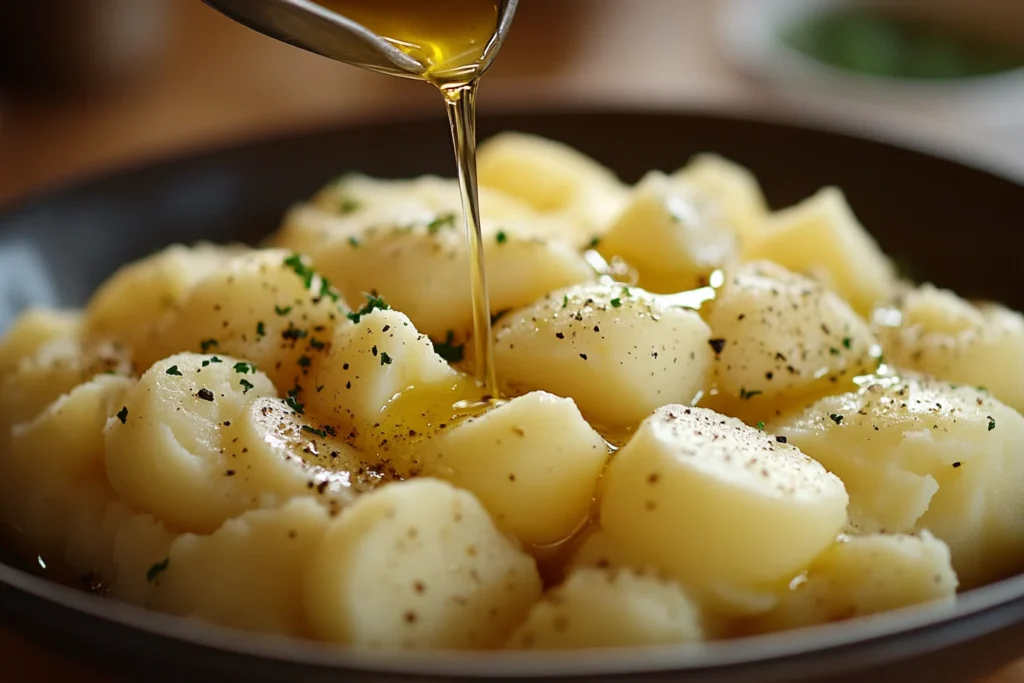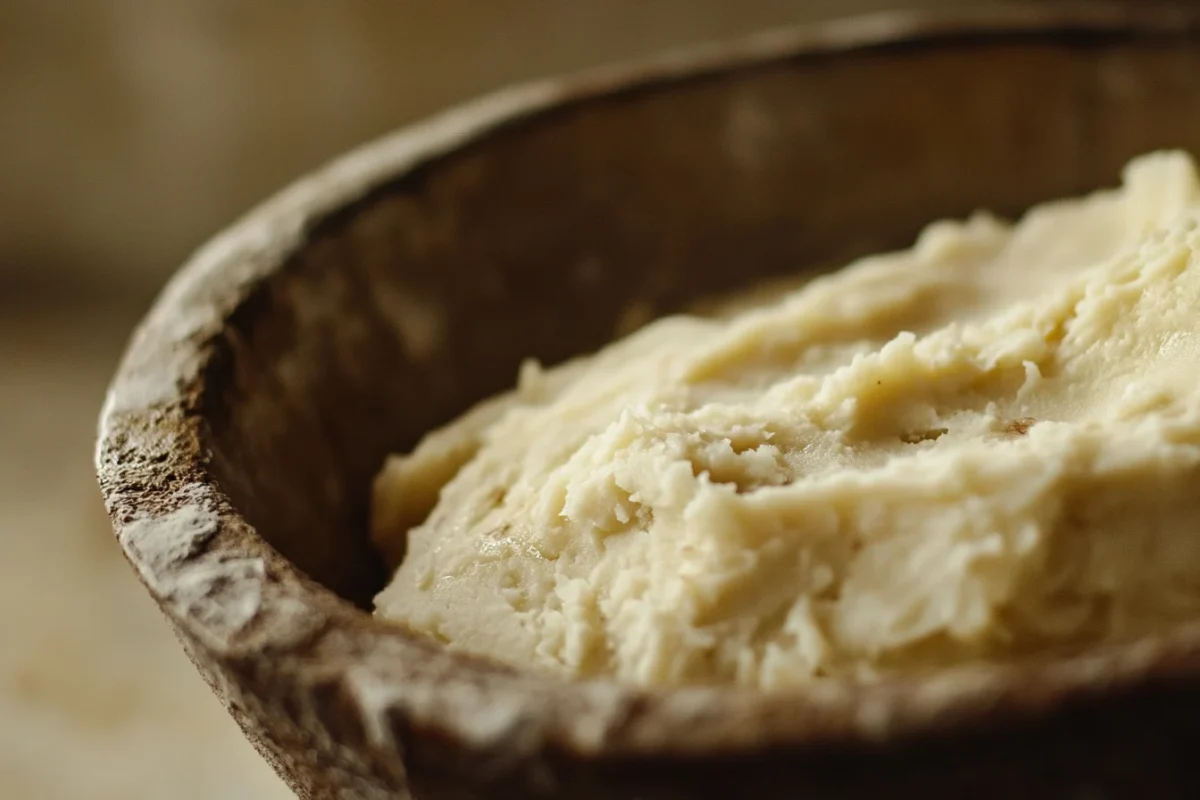Understanding Mashed Potatoes and Their Popularity
Historical Background of Mashed Potatoes
Are mashed potatoes healthy to eat? This popular question has deep roots in the long history of this comforting dish. The humble potato, native to South America, has traveled a long way to become a global staple. Mashed potatoes, often regarded as a favorite comfort food, gained traction during the 18th century, particularly in Europe, as a versatile and affordable dish. Their creamy texture and mild flavor make them an ideal accompaniment to a wide range of meals.
But are mashed potatoes healthy to eat today? Beyond their history, the health benefits of mashed potatoes are frequently explored. Whether served with nutritious pairings or indulged in as part of a decadent recipe, mashed potatoes remain a subject of debate in terms of health. As such, their role in both healthy and indulgent diets continues to evolve. For many, mashed potatoes evoke feelings of comfort and nostalgia—whether served at festive feasts or as part of a simple weeknight dinner.
Prevalence in Various Cuisines
Mashed potatoes aren’t just limited to Western fare. From Irish colcannon to Indian aloo bharta, variations of mashed potatoes exist in many cuisines. These dishes are often tailored with regional spices, ingredients, and cooking techniques, making them a cross-cultural delight. The ability to customize mashed potatoes for taste, texture, and dietary needs contributes significantly to their universal appeal, bridging culinary traditions around the globe.
Nutritional Profile of Mashed Potatoes

Macronutrient Composition
Mashed potatoes primarily consist of carbohydrates, making them a quick and efficient energy source. A single cup of plain mashed potatoes contains around 36 grams of carbohydrates, which is ideal for fueling the body, especially for physically active individuals. However, they lack significant dietary fiber unless the potato skins are retained, which can aid digestion and provide sustained energy.
Carbohydrates and Fiber Content
Potatoes are a starchy vegetable, and their carbohydrate content is mostly simple starch. Unfortunately, this contributes to a relatively high glycemic index (GI). While plain mashed potatoes are low in fiber, incorporating the skins or pairing them with fiber-rich foods can improve their nutritional profile significantly.
Protein Levels in Mashed Potatoes
Although not a significant source of protein, mashed potatoes contain about 4 grams per cup. While this isn’t enough to meet daily protein needs, adding high-protein ingredients like milk or Greek yogurt during preparation can boost their nutritional value.
Fat Content Analysis
When made traditionally with butter and cream, mashed potatoes can be surprisingly high in fat. However, the fats derived from whole foods like olive oil or avocado can provide healthier alternatives, turning this comfort food into a nutritious delight.
Micronutrient Content
Mashed potatoes shine when it comes to vitamins and minerals. They offer a robust array of essential nutrients crucial for maintaining overall health.
Vitamins Present in Mashed Potatoes
Potatoes are a rich source of vitamin C, which boosts immunity and aids in skin health. While cooking can reduce vitamin C levels, other vitamins like B6 remain intact, supporting brain function and red blood cell production.
Mineral Composition
A serving of mashed potatoes contains a generous dose of potassium, a mineral vital for maintaining healthy blood pressure and muscle function. They also provide small amounts of magnesium, iron, and zinc, further contributing to a balanced diet.
Health Benefits of Mashed Potatoes
Source of Essential Nutrients
Mashed potatoes may often be overlooked as a mere side dish, but their nutrient-rich profile tells a different story. Packed with essential vitamins, minerals, and carbohydrates, they offer several health benefits that go beyond just being a tasty comfort food.
Role of Potassium in Blood Pressure Regulation
Potatoes are among the best dietary sources of potassium. A single serving of mashed potatoes can provide nearly 20% of the recommended daily intake of this mineral. Potassium plays a pivotal role in counteracting the effects of sodium, thereby aiding in maintaining healthy blood pressure levels. This makes mashed potatoes a heart-friendly option—if prepared without excessive salt.
Vitamin C and Its Antioxidant Properties
Who knew mashed potatoes could be a source of antioxidants? Their vitamin C content not only supports immune function but also helps combat free radicals in the body, reducing oxidative stress and potentially lowering the risk of chronic diseases. Plus, it’s great for skin health, keeping your complexion glowing and resilient.
Digestive Health
Mashed potatoes can be a soothing and beneficial addition to your diet, particularly for the digestive system. While plain versions may lack fiber, slight tweaks can significantly improve their impact on digestion.
Importance of Dietary Fiber
Fiber is essential for a healthy digestive system, and though regular mashed potatoes aren’t naturally rich in it, leaving the skins on during preparation can add this much-needed component. Fiber promotes regular bowel movements, aids in gut health, and prevents digestive disorders.

Presence of Resistant Starch
When mashed potatoes are cooked and then cooled, they develop resistant starch. This unique carbohydrate resists digestion, acting like fiber in the gut. Resistant starch can enhance gut health by feeding beneficial bacteria and may even aid in blood sugar regulation.
Potential Health Concerns
Glycemic Index and Blood Sugar Levels
While mashed potatoes provide a quick energy boost, they come with potential downsides—particularly for those concerned about blood sugar regulation. Their high glycemic index (GI) means they can cause rapid spikes in blood glucose, especially when consumed in large portions or prepared with added sugars and fats.
Impact on Individuals with Diabetes
For individuals managing diabetes, mashed potatoes can pose a challenge. The simple carbohydrates in potatoes are broken down quickly, which might lead to insulin resistance over time if not balanced with fiber, proteins, or healthy fats. Pairing mashed potatoes with low-GI foods like leafy greens can mitigate these effects.
Comparison with Other Carbohydrate Sources
Compared to sweet potatoes or whole grains like quinoa, mashed potatoes rank higher on the GI scale. However, their preparation method plays a critical role. Steamed or boiled potatoes with minimal mashing and added fat retain more of their natural structure, lowering their GI compared to highly whipped versions.
Caloric Density and Weight Management
Mashed potatoes can be deceptively calorie-dense, depending on how they’re prepared. While plain mashed potatoes are relatively low in calories, the addition of butter, cream, or cheese can turn this simple dish into a calorie bomb.
Effects of Added Ingredients (Butter, Cream)
Traditional recipes often call for heavy additions like butter and cream, which significantly increase fat and calorie content. Though these additions enhance flavor, they can also derail weight management goals if not portioned carefully.
Portion Control Considerations
The creamy texture and savory taste of mashed potatoes make them easy to overeat. Using smaller serving sizes, pairing them with a lean protein, and opting for lower-calorie alternatives like cauliflower mash can help maintain a balanced diet.
Healthier Preparation Methods
Choosing the Right Potato Variety
Not all potatoes are created equal, especially when it comes to making mashed potatoes. The type of potato you choose can influence both the texture and nutritional value of your dish.
Differences Between Russet, Yukon Gold, and Red Potatoes
- Russet Potatoes: Known for their fluffy texture when mashed, russets are a popular choice. However, they tend to have a higher glycemic index and less fiber compared to other varieties.
- Yukon Gold Potatoes: These potatoes strike a perfect balance between creaminess and nutrition. They have a natural buttery flavor, which means you can use less added fat during preparation.
- Red Potatoes: With their thin, nutrient-rich skins, red potatoes are excellent for maintaining more fiber and retaining vitamins during cooking.
Choosing Yukon Gold or red potatoes can make your mashed potatoes both delicious and nutrient-packed.
Alternative Ingredients for Enhanced Nutrition
Enhancing the nutritional value of mashed potatoes doesn’t require sacrificing taste. With a few ingredient swaps, you can create a healthier version of this beloved dish.
Using Olive Oil Instead of Butter
Swap out butter for heart-healthy olive oil. This substitution not only reduces saturated fats but also provides a dose of healthy monounsaturated fats. Olive oil adds a subtle richness without overpowering the natural potato flavor.

Incorporating Vegetables like Cauliflower
For a nutrient boost, try blending steamed cauliflower into your mashed potatoes. This reduces calories while adding fiber, vitamins, and minerals. You’ll barely notice the difference in taste, but your body will thank you for the added nutrition.
Cooking Techniques to Preserve Nutrients
The way you cook your potatoes can significantly affect their nutritional content. By adopting the right techniques, you can maximize their health benefits.
Steaming vs. Boiling
- Steaming: Retains more nutrients compared to boiling, as fewer vitamins leach out into the water.
- Boiling: If boiling is your preferred method, try using the least amount of water possible and avoid overcooking to preserve the vitamins.
Importance of Retaining Potato Skins
Leaving the skins on while cooking and mashing potatoes increases their fiber content and adds essential nutrients like magnesium and zinc. Plus, it gives your mashed potatoes a rustic texture that’s both appealing and satisfying.
Frequently Asked Questions (FAQs) About Mashed Potatoes and Health
Are Mashed Potatoes Healthy or Unhealthy?
Are mashed potatoes healthy to eat? The answer depends on how they’re prepared and consumed. Plain mashed potatoes, made with minimal added fats and without excessive salt, can be a healthy choice. They’re a great source of carbohydrates, potassium, and vitamin C, making them nutritious and energizing. However, traditional recipes that include butter, cream, or cheese often tip the dish toward the unhealthy side, significantly increasing its fat and calorie content.
To ensure mashed potatoes remain healthy:
- Choose lighter preparation methods using olive oil or low-fat dairy.
- Avoid excessive use of butter and salt.
- Pair mashed potatoes with fiber-rich vegetables or lean proteins to create a balanced meal.
By making these simple adjustments, mashed potatoes can be both delicious and nourishing, aligning with your dietary goals.
Is Mashed Potato Healthy for Weight Loss?
Are mashed potatoes healthy to eat when you’re trying to lose weight? The answer is yes, if eaten mindfully. Mashed potatoes, when prepared with simple, wholesome ingredients, can fit into a weight-loss diet. Their high carbohydrate content provides essential energy, especially for an active lifestyle, and their low-fat base (when prepared plain) makes them a suitable option for calorie-conscious individuals.
To make mashed potatoes more weight-loss-friendly:
- Use low-fat milk or vegetable broth instead of cream to reduce calories.
- Replace butter with olive oil for healthier fats or skip it entirely.
- Watch portion sizes to avoid overloading on carbohydrates or exceeding calorie limits.
For added benefits, consider incorporating fiber-rich vegetables, like mashed cauliflower or steamed spinach, to increase satiety and enhance nutritional value. With these adjustments, mashed potatoes can become a delicious, balanced choice in a weight-loss plan. steamed cauliflower or spinach, can also enhance the satiety factor, making mashed potatoes a more filling meal.
What Is the Healthiest Way to Eat Potatoes?
The healthiest way to eat potatoes is by preparing them with minimal processing and preserving their nutrient content. Here are some tips:
- Keep the skins on: Potato skins are rich in fiber, magnesium, and antioxidants.
- Choose steaming or baking: These methods retain most nutrients while avoiding added fats from frying.
- Avoid heavy toppings: Swap butter and sour cream for lighter options like Greek yogurt or a drizzle of olive oil.
- Add herbs and spices: Fresh herbs like parsley or rosemary can boost flavor without the need for excess salt.
What Are the Benefits of Eating Mashed Potatoes?
Mashed potatoes provide numerous benefits, including:
- Energy Boost: Their carbohydrate content offers a quick and sustained energy source, making them ideal for active individuals.
- Rich in Potassium: Potatoes are a top source of potassium, which helps maintain healthy blood pressure levels and supports muscle function.
- Digestive Support: When prepared with their skins, mashed potatoes can contribute to better digestion due to their fiber content.
- Comfort Food Appeal: Their creamy texture and mild flavor can reduce stress and provide emotional comfort, which can indirectly benefit overall well-being.
Summarizing the Health Aspects of Mashed Potatoes
Balancing Enjoyment with Nutritional Awareness
Are mashed potatoes healthy to eat? Mashed potatoes, with their creamy texture and comforting appeal, can be a healthy addition to your diet when consumed mindfully. They offer essential nutrients like potassium, vitamin C, and carbohydrates, making them a versatile food choice for energy and overall health. However, their nutritional value depends largely on how they’re prepared. Excessive use of butter, cream, or salt can turn this wholesome dish into a calorie-dense indulgence.
To strike the right balance and enjoy mashed potatoes healthily:
- Opt for lighter preparation methods using olive oil or low-fat dairy.
- Incorporate fiber-rich ingredients like potato skins or mashed cauliflower.
- Practice portion control to avoid overloading on calories or carbohydrates.
Final Thoughts
Mashed potatoes don’t have to be an “all or nothing” food. With thoughtful tweaks to traditional recipes, you can enjoy their comforting flavors while reaping the health benefits. Whether paired with lean proteins, added to a balanced meal, or modified to include nutrient-dense alternatives, mashed potatoes can be both delicious and nourishing. The key lies in moderation and preparation.
So, are mashed potatoes healthy to eat? Absolutely—but the secret is in how you make and serve them. Let mashed potatoes be the wholesome comfort food they were always meant to be!

